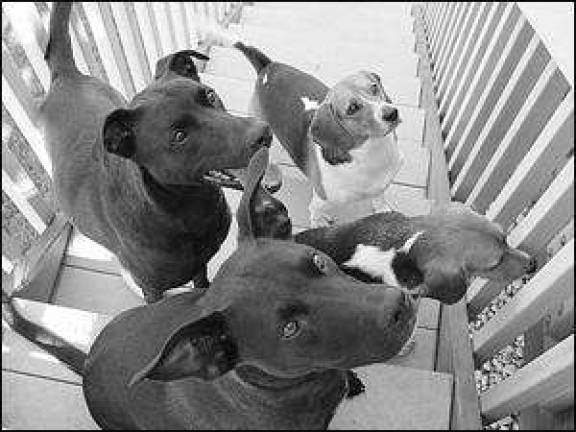Overcrowding of Wantage dog pound may curtail services to other towns

WANTAGE - The Wantage dog pound has too many “customers” and not enough space, and N.J. Department of Health officials have told the township to either add a new wing or to house fewer animals. The problem is the pound doesn’t have an area to isolate sick animals from healthy ones, and many of the animals being impounded in the facility are sick. Building a new wing would be a costly burden on Wantage taxpayers, Mayor Jeffrey Parrott said at a recent township committee meeting. So Wantage officials are taking a hard look at the scope of the service Wantage Animal Control now is providing to local towns, including Franklin, Hamburg, Sussex Borough, Newton and Stillwater, and looking for ways to cut back. Branchville and Lafayette employ their own animal control officers, but contract with Wantage Township for the use of the dog pound. What’s more, Montague and Hampton contract with Wantage for animal control service, but use other locations to keep the animals. In addition to collecting dogs and cats, animal control officers may be called to deal with rabid skunks and raccoons. If veterinary services are required, Wantage assesses the costs to the town from which the animal came, or in the case of a known owner for the animal, the costs are assessed to the owner. The animal control and pound service contracts are renewed annually with each client, Wantage Township Administrator Jim Doherty said, so that if a municipality believes it can get a better deal somewhere else it is not tied to a long-term arrangement in Wantage. “Sandyston has just recently taken advantage of this arrangement,” said Doherty. “After using our dog pound for over a decade, they chose not to renew their contract with us for 2006, believing they could locate a more cost-effective option.” The mayor and committee already have decided to halt their agreements with Sussex Borough and Stillwater, starting in January. Wantage officials say that from May through December 2005, 19 animals housed at the dog pound were from Sussex. So far this year, 20 animals at the pound have come from Sussex. By comparison, there have been 27 animals housed at the Wantage Pound from Stillwater in the past two-and-a-half months. Mayor Catherine Little of Sussex Borough said that if Wantage goes through with the plan to end the agreement with Sussex, the borough would make other arrangements. Sussex Borough first signed an agreement with Wantage for animal control services in April of 2005. “We have the question of cats under control with CLAWS Cat Shelter providing the services. We’ll have to arrange for dog pound services, however,” Little said. Doherty said that the township is “diligently attempting” to address the concerns of the State Health Department by applying for a grant that might help pay for the costs of expanding the Wantage pound. “If we are successful in this application, we may be once again in a position to offer additional services to the communities of Stillwater and Sussex Borough, should they still desire our services at that time,” Doherty said. “If the concerns of the state health department are successfully laid to rest quickly, we may even be in a position to renew the 2007 contracts after all with these communities.” Wantage Animal Control Officer Bernice Bajda is a salaried employee, and her salary is paid regardless of whether she is collecting an animal in Wantage or in another community, Doherty observed, adding that the amount of money charged to other towns offsets the Wantage taxpayer cost for her salary. Wantage also has four assistant animal control officers, who are paid about $1,400 a year, in addition to their regular pay as full-time public works employees. Wantage budgets $10,000 a year for overtime costs associated with animal control, and collects $36,885 in revenue from other towns through service agreements, Doherty explained. That means that Wantage is realizing a cost benefit from the arrangements. “Our client communities can individually pay for animal control service at a cost that is more cost effective than if they tried to contract individually with some one else,” he said. “That’s called a win-win situation.”